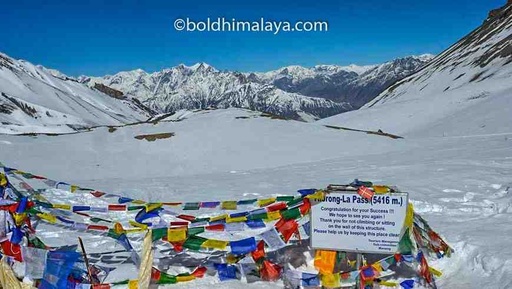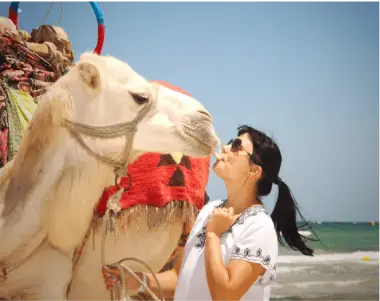Hiring Trekking Guide in Nepal
Trekking in Nepal is a popular activity for adventure enthusiasts from all over the world. Nepal is home to some of the world’s most beautiful and challenging trekking routes, including the famous Everest Base Camp Trek, Annapurna Circuit Trek, and Manaslu Circuit Trek.
Hiring a trekking guide is highly recommended and compulsory according to the new rule of the Nepal government, it's compulsory to go trekking through the registered company's guide since 01 April 2023.
If you're planning on trekking in Nepal. please don't hesitate to contact us for an experienced guide licensed holder guide our trekking guide will show you the way, keep you safe on the trail, and provide valuable insights into the local culture and environment.
The process to Hire Trekking Guide in Nepal with Company
To hire a trekking guide in Nepal, you can follow these steps:
1. Research:
Research to find reliable and trustworthy trekking companies in Nepal. Look for reviews and recommendations from previous customers to ensure the company has a good reputation.
2. Contact the company:
Once you have identified a few trekking companies, contact them and inquire about their services. Ask about their guides' experience and qualifications, rates, and availability.
3. Discuss your requirements:
Explain your requirements and preferences to the trekking company. Let them know your trekking route, the duration of your trip, your budget, and any other specific needs you may have.
4. Book your guide:
Once you have chosen a guide, confirm your booking by paying a deposit. Ensure you get a written contract outlining the terms and conditions of the service, including cancellation and refund policies.
5. Meet your guide:
When you arrive in Nepal, you will meet your guide and finalize the details of your trek. Make sure you discuss your itinerary, safety measures, and any concerns.
6. Enjoy your trek:
With a qualified and experienced guide, you can enjoy your trek with peace of mind. Follow their instructions and advice, and have a safe and memorable journey.
Reason for Hiring Trekking Guide in Nepal
There are several reasons why it is recommended to hire a trekking guide in Nepal:
1. Safety:
Trekking in Nepal can be challenging and sometimes difficult, especially for those who need to become more familiar with the terrain and climate. they are trained with some training such as first aid, emergency rescue, etc.
so the trekking guides can provide safety and security, as they have experience handling emergencies, such as altitude sickness, injuries, and natural disasters.
2. Local Knowledge:
Trekking guides in Nepal have extensive knowledge of the local culture, customs, and traditions. They can help you interact with the local communities, learn about their lifestyle, and experience their hospitality.
3. Route Planning:
Trekking guides have in-depth knowledge of the trekking routes in Nepal. They can help you plan your itinerary, choose the best route, and avoid potential hazards.
4. Language Barrier:
A trekking guide who speaks your language can help you communicate with the locals, especially if you need to become fluent in Nepali or other languages.
5. Equipment and Logistics:
Trekking companies and guides in Nepal can arrange for all the necessary equipment, such as tents, sleeping bags, and cooking gear. They can also handle logistics, such as transportation, permits, and accommodation.
6. Support and Encouragement:
Trekking can be physically and mentally demanding, mainly if you are not used to the altitude and terrain. A trekking guide can provide emotional support, encouragement, and motivation, helping you overcome any challenges and reach your goals.
7. Environmental Awareness:
Trekking guides in Nepal are often trained in ecological conservation and sustainability practices. They can educate you on minimizing your environmental impact and preserving the trekking routes' natural beauty.
8. Navigation and Orientation:
Trekking guides are experts in navigation and orientation, using maps, compasses, and other tools to help you find your way. They can also provide valuable information on landmarks, topography, and information geography.
9. Cultural Exchange:
Trekking guides can facilitate cultural exchange between you and the local communities. They can help you learn about Nepal's history, religion, and traditions and introduce you to the local people and their way of life.
10. Customization:
Trekking guides can customize your trekking experience to suit your preferences and interests. They can suggest alternative routes, side trips, and activities based on your fitness level, time constraints, and personal preferences.
Hiring a trekking guide in Nepal can enhance your safety, comfort, and enjoyment while also providing you with a deeper understanding and appreciation of the local culture and environment.
Government Rules to Hire Trekking Guide in Nepal
In Nepal, it is mandatory to hire a licensed trekking guide through a registered trekking company since 2023 April 01. The government has set rules and regulations to ensure the safety and security of trekkers and regulate the trekking industry.
Here are some of the government rules for hiring a trekking guide in Nepal:
1. Licensed Guide:
The trekking guide must have a valid license issued by the Ministry of Culture, Tourism, and Civil Aviation and be registered with the Trekking Agencies Association of Nepal (TAAN) or Nepal Mountaineering Association (NMA).
2. Trekking Agency:
Trekkers are required to hire a licensed trekking guide through a registered trekking agency. The agency must be authorized by the Ministry of Culture, Tourism, and Civil Aviation and have a valid license.
3. Trekking Permit:
Trekkers must obtain a trekking permit from the Tourism Board and the Department of Immigration to enter trekking areas in Nepal. The permit fee varies depending on the area and duration of the trek.
4. Insurance:
Trekking guides must have valid insurance that covers emergency medical treatment, rescue, and evacuation.
5. Identification:
Trekking guides must carry their license and identification card issued by the government and the trekking agency at all times during the trek.
6. Responsible Trekking:
Trekkers and guides must follow responsible trekking practices, including minimizing their environmental impact and respecting the local culture and customs.
7. Group Size:
The government has set a minimum group size of two trekkers for all restricted trekking areas in Nepal. Solo trekking is not allowed; a licensed guide must always accompany trekkers.
8. Trekking Routes:
Trekking guides must follow the designated routes and avoid unauthorized areas. They must also comply with the local authorities' rules and regulations and respect the local communities' rights.
9. Timely Reporting:
Trekking guides must report any incidents or accidents to the trekking agency and the local authorities on time. They must also inform the trekkers of any developments and changes in the itinerary.
10. Health and Safety:
Trekking guides must prioritize the health and safety of the trekkers at all times. They must be trained in first aid and emergency response and carry necessary medical equipment and supplies.
11. Payment:
Trekkers must pay the trekking, permit, and guide fees to authorized agencies and government offices. They must obtain a receipt for all payments made and report any irregularities or frauds to the appropriate authorities.
Nepal Government applied rules to hiring a licensed trekking guide through a registered trekking agency is essential to ensure a safe and enjoyable trekking experience in Nepal.
How to choose a trekking guide
Training
The first factor to consider when choosing a trekking guide in Nepal is their training. A good guide should have undergone first aid, emergency response, environmental conservation, and cultural sensitivity training.
The training should be from a reputable institution focusing on outdoor activities, trekking, and mountaineering.
An excellent place to start is by checking the guide's certifications and licenses. In Nepal, all trekking guides must be licensed by the Ministry of Culture, Tourism, and Civil Aviation. The license ensures that the guide has undergone proper training and meets the minimum safety, professionalism, and ethical standards.
You can also check the guide's affiliations with organizations such as the Trekking Agencies Association of Nepal (TAAN) or the Nepal Mountaineering Association (NMA). These associations ensure members adhere to specific standards, undergo regular training, and maintain high professionalism.
Working Experience
The second factor to consider when choosing a trekking guide in Nepal is their working experience. Experienced guides are likely to have a better understanding of the routes, conditions, and potential hazards.
They may also have established relationships with the local communities, which can enhance your cultural exchange experience. An experienced guide can provide insights into the terrain, weather conditions, and local customs.
To determine a guide's experience level, you can ask for references or check online reviews and recommendations. You can also ask the guide about their previous trekking experiences and how long they have worked in the trekking industry.
Meet and Talk with Guide
The third factor to consider when choosing a trekking guide in Nepal is to meet and talk with the guide. This is the most crucial step as it allows you to assess the guide's communication skills, interpersonal skills, and overall demeanor.
You want to choose a guide who is a friendly, supportive, and responsive guide to your needs and preferences. During the meeting, you can ask the guide about their approach to trekking, their familiarity with the area, and their level of preparedness for emergencies.
A good guide should be able to provide you with a clear plan for the trek, including the itinerary, accommodation, and transportation.
They should also be open to your suggestions and willing to adjust the plan to suit your needs. You can also use the meeting to gauge the guide's enthusiasm and passion for trekking.
An excellent guide should be passionate about trekking, appreciate nature, and know about the area's flora, fauna, and geography. They should also respect the local culture and customs and be willing to facilitate cultural exchange experiences.
Reviews and Recommendations
Look for reviews and recommendations from previous trekkers who have hired the guide. You can check online travel forums and social media groups or ask for referrals from friends or family who have trekked in Nepal.
Reviews and recommendations can provide valuable insights into the guide's performance, professionalism, and overall quality of service.
Certification
Check if the guide is certified and licensed by the government authorities and registered with a recognized trekking agency in Nepal.
This ensures that the guide has undergone proper training and meets the minimum safety, professionalism, and ethical conduct standards. Choosing a trekking guide in Nepal is a crucial decision to make or break your trekking experience.
It is essential to select a qualified, experienced, and reliable guide.
Factors include their training, working experience, and meeting and talking with them. Remember, a good guide can not only help you navigate the terrain and offer insights into the local culture, flora, fauna, and geography, making your trekking experience truly unforgettable.
Trekking Guide and Porter Cost
The salary of a trekking guide and porter in Nepal can vary depending on various factors such as the duration of the trek, trek routes, difficulty level, experience, and negotiation skills. However, the normal salary for a guide and porter is:
Trekking Guide Cost:
The cost of a trekking guide in for common trekking area is $27 or more per day depending on the experience, language proficiency, and the number of trekkers in the group.
Porter Guide Cost:
The cost for a porter guide in Nepal is $22 per day
Porter Cost:
The cost for the porter in Nepal is $22 per day porter brings bags from one camp to another camp.
Bold Himalaya ensures fair pay and a good working environment for our guides and porters.








asdasdsad
xzzxxzzxczxc
adasdsadasdsadas
asdasd